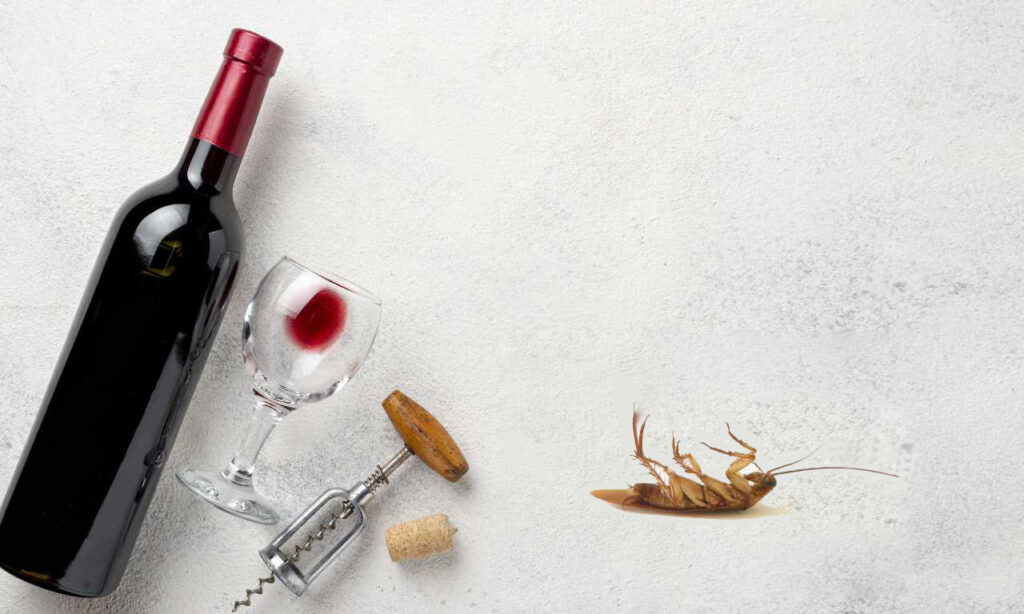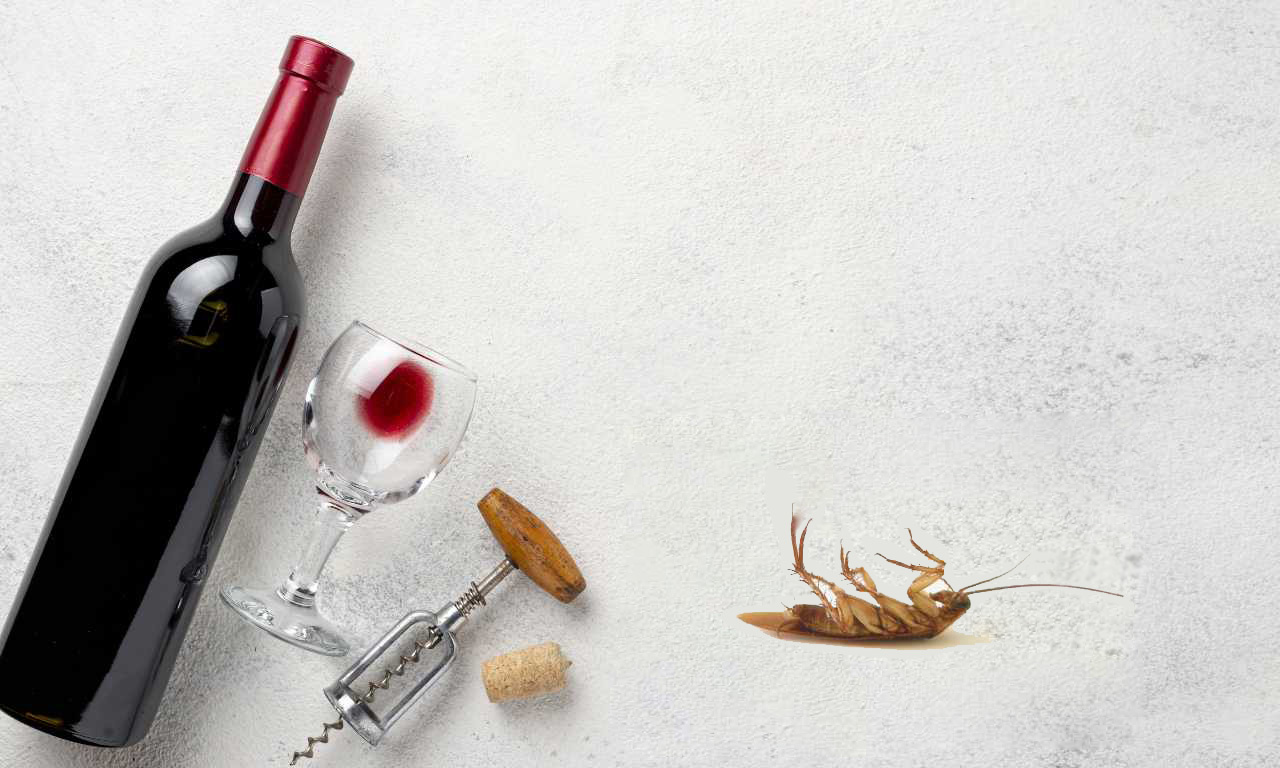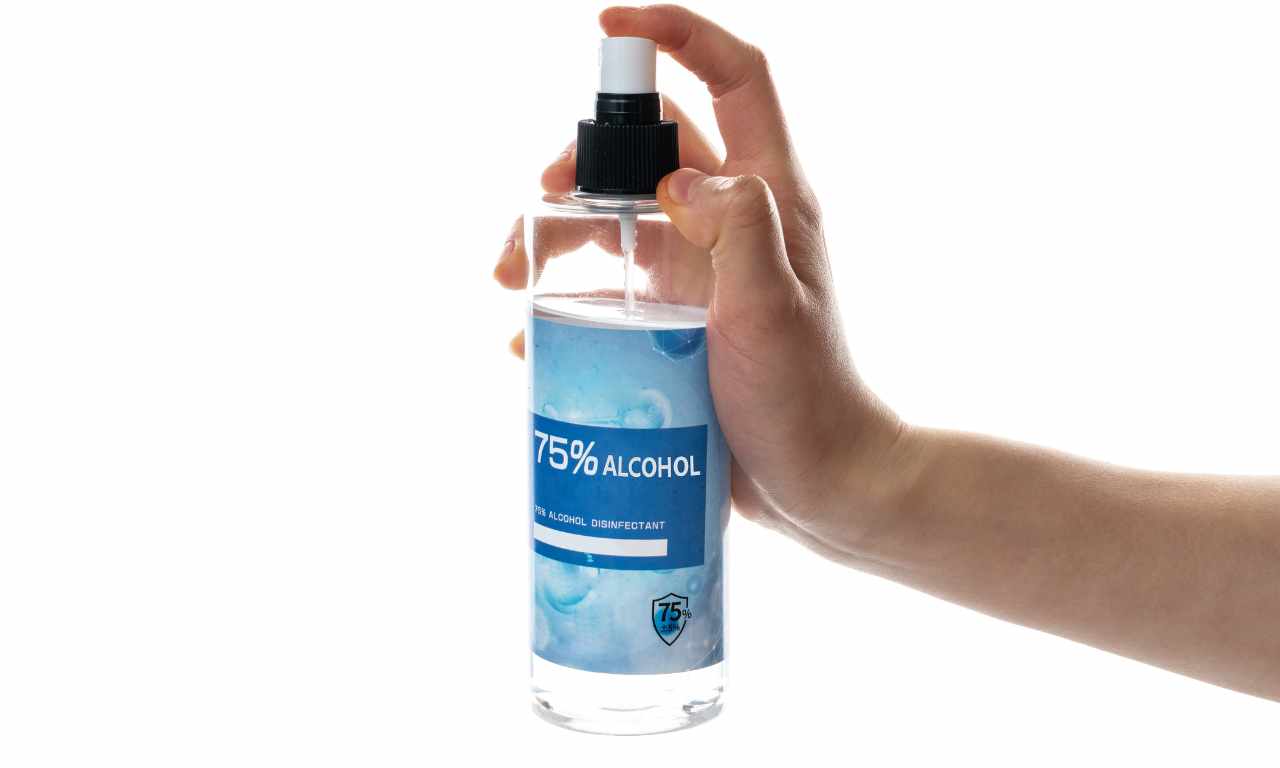

Cockroaches are known for their resilience and ability to survive in tough environments. However, they have a weakness when it comes to alcohol. Alcohol can be used as an effective pest control method. Let’s find out why alcohol is dangerous for cockroach.
Cockroaches die in alcohol because it disrupts their nervous system and causes dehydration. Cockroaches breathe through tiny holes in each of their body segments called spiracles, and alcohol can block these spiracles, making it difficult for the roach to take in air.
This leads to suffocation and death. Additionally, alcohol can cause dehydration by disrupting the cockroach’s ability to regulate water balance.
Cockroaches have a unique cuticle, a protective layer on the outside of their body, that helps them to retain moisture. Alcohol disrupts this cuticle, causing the cockroach to lose water and become dehydrated. The combination of suffocation and dehydration leads to the death of the cockroach.
It is important to note that not all types of alcohol are equally effective at killing cockroaches. Ethanol, the type of alcohol found in alcoholic beverages, is the most toxic to cockroaches. Isopropyl alcohol, commonly found in cleaning products, is also effective at killing cockroaches, but it may take longer to do so.
Which Alcohol Is Most Effective Against Cockroaches?
 Ethanol is the most effective type of alcohol for killing cockroaches. Ethanol is the type of alcohol found in alcoholic beverages and is highly toxic to cockroaches. When exposed to high concentrations of ethanol, cockroaches will quickly experience suffocation and dehydration, leading to death.
Ethanol is the most effective type of alcohol for killing cockroaches. Ethanol is the type of alcohol found in alcoholic beverages and is highly toxic to cockroaches. When exposed to high concentrations of ethanol, cockroaches will quickly experience suffocation and dehydration, leading to death.
Isopropyl alcohol, commonly found in cleaning products, is also an effective insecticide against cockroaches, but it may take longer to kill the insects than ethanol. This is because isopropyl alcohol is less toxic than ethanol, and it takes longer to cause suffocation and dehydration.
It’s important to note that the concentration of the alcohol is also a factor in its effectiveness. High concentrations of alcohol, such as 95% or higher, are more toxic to cockroaches than lower concentrations. Additionally, the length of time the cockroach is exposed to the alcohol also plays a role in its effectiveness. A longer exposure time will result in a higher mortality rate.
In addition to its direct toxic effects, alcohol can also act as a desiccant, which means it can dry out the cockroach’s body and disrupt its cuticle, a protective layer on the outside of its body. This can lead to dehydration and death.
It’s also worth mentioning that alcohol-based insecticides are not a long-term solution for cockroach control. While they may provide quick relief, the insects can quickly develop a resistance to the toxic effects of alcohol, making it less effective over time.
Why Would A Cockroach Go Near Alcohol?
- Smell: Cockroaches have a keen sense of smell and can be attracted to the odor of alcohol. Alcohol emits a strong, sweet smell that can attract cockroaches, especially in areas where food or other resources are present.
- Food or other resources: Cockroaches are scavengers and will feed on almost anything that is available, including fermented or rotting food and alcohol. If there is food or other resources present in or near an alcohol spill, cockroaches may be attracted to the area.
- Moist environments: Cockroaches require moisture to survive and are attracted to moist environments. Alcohol can provide a source of moisture for cockroaches, especially in dry or arid conditions.
- Instinct: Cockroaches have an instinct to seek out environments that are safe and provide the resources they need to survive. If an alcohol spill provides both a source of moisture and food, a cockroach may be attracted to the area as a safe place to feed and hydrate.
It is important to note that while cockroaches may be attracted to alcohol, they can also be killed by it. Alcohol disrupts the cockroach’s nervous system and causes suffocation and dehydration, leading to death.
In conclusion, cockroaches may be attracted to alcohol for several reasons, including the smell, the presence of food or other resources, their need for moisture, and their instinct to seek out safe environments. However, it is important to be aware that alcohol can also be toxic to cockroaches and lead to their death.
Do Cockroaches Like Drinking Alcohol?
No, cockroaches do not like drinking alcohol. Cockroaches are not capable of drinking or consuming liquids in the same way that humans do. They obtain the moisture they need to survive through their food and the environment.
Alcohol can be toxic to cockroaches and cause death. When exposed to high concentrations of alcohol, cockroaches experience suffocation and dehydration, leading to death. While alcohol may provide a source of moisture for cockroaches in dry or arid conditions, it is not a preferred source of hydration for the insects.
Can A Cockroach Die If It Consumes An Alcohol Consumed Animal?
Yes, a cockroach can die if it consumes an animal that has consumed alcohol. When an animal consumes alcohol, it is absorbed into the bloodstream and distributed throughout the body, including the organs and tissues.
If a cockroach feeds on an animal that has consumed alcohol, it may ingest some of the alcohol along with the tissue. This can lead to the cockroach experiencing the toxic effects of alcohol, including suffocation and dehydration, leading to death.
However, it is important to note that the amount of alcohol ingested by the cockroach and its toxic effects will depend on several factors, including the type and concentration of alcohol, the size of the cockroach, and the length of time the cockroach is exposed to the alcohol.
How To Kill Cockroaches With Alcohol?
 Alcohol can be an effective way to kill cockroaches. The toxic effects of alcohol on cockroaches include suffocation and dehydration, leading to death. Here are the steps to kill cockroaches with alcohol:
Alcohol can be an effective way to kill cockroaches. The toxic effects of alcohol on cockroaches include suffocation and dehydration, leading to death. Here are the steps to kill cockroaches with alcohol:
- Identify areas of infestation: Look for signs of cockroach activity, such as droppings, shed exoskeletons, or live insects. Pay special attention to areas where food is stored, such as the kitchen, pantry, and garbage cans.
- Choose the right type of alcohol: Isopropyl alcohol, also known as rubbing alcohol, is the most effective type of alcohol for killing cockroaches. It is readily available and affordable. Ethanol and methanol are also effective but may be less accessible and more expensive.
- Mix the alcohol with water: Mix the alcohol with water in a spray bottle to create a solution that will kill the cockroaches. A solution of 70% alcohol and 30% water is recommended. This concentration is effective in killing cockroaches but is not strong enough to cause damage to surfaces in your home.
- Spray the solution: Spray the alcohol solution directly on the cockroaches and in the areas where they are known to hide, such as cracks, crevices, and baseboards. The solution will kill the cockroaches on contact and will also evaporate quickly, leaving no residue.
- Repeat the treatment: Repeat the treatment every few days until all cockroaches have been eliminated. Cockroaches can lay eggs that can hatch into new individuals, so it is important to continue the treatment until all signs of infestation have been eliminated.
It is important to note that while alcohol can be an effective way to kill cockroaches, it may not be the most suitable method for larger infestations or for areas where food is stored. In these cases, professional pest control services may be necessary to eliminate the cockroach problem.
Preventive Measures While Using Alcohol To Remove Cockroaches?
While alcohol can be an effective way to kill cockroaches, there are certain precautions that should be taken to ensure the safety and effectiveness of the treatment. Here are some preventive measures to keep in mind while using alcohol to remove cockroaches:
- Ventilation: Alcohol has a strong odor and fumes that can be toxic to humans and pets. Make sure to open windows and use fans to provide good ventilation while using alcohol to kill cockroaches. Avoid using alcohol in areas where food is stored or prepared, and do not use it near open flames or heat sources.
- Personal protective equipment: Alcohol can be harmful if it comes into contact with skin or eyes. Wear gloves and goggles to protect your skin and eyes from exposure to alcohol.
- Concentration of alcohol: The concentration of alcohol used to kill cockroaches should be no more than 70% alcohol and 30% water. Higher concentrations of alcohol can be more toxic and can cause damage to surfaces in your home.
- Storing alcohol: Alcohol should be stored in a secure location out of reach of children and pets. It is flammable and should be stored away from heat sources and open flames.
- Keeping food and dishes away: Before using alcohol to kill cockroaches, remove all food and dishes from the area. This will prevent contamination of food and dishes with alcohol.
- Avoid using alcohol in areas where food is stored: Alcohol can be toxic if ingested, so it should not be used in areas where food is stored, such as pantries and refrigerators.
- Repeat the treatment: Repeat the treatment every few days until all cockroaches have been eliminated. Cockroaches can lay eggs that can hatch into new individuals, so it is important to continue the treatment until all signs of infestation have been eliminated.
In conclusion, while using alcohol to remove cockroaches, it is important to take certain preventive measures to ensure the safety and effectiveness of the treatment. These measures include providing good ventilation, wearing personal protective equipment, using the correct concentration of alcohol, storing alcohol securely, keeping food and dishes away, avoiding using alcohol in areas where food is stored, and repeating the treatment until all cockroaches have been eliminated.
Welcome to my blog. I have been doing pest control for years since my house, garden and pets were always attacked by various kinds of pests and as a result I had to know proper pest control techniques that works. In this blog I share all the tips and tricks that I know and I hope you’ll find it helpful.
